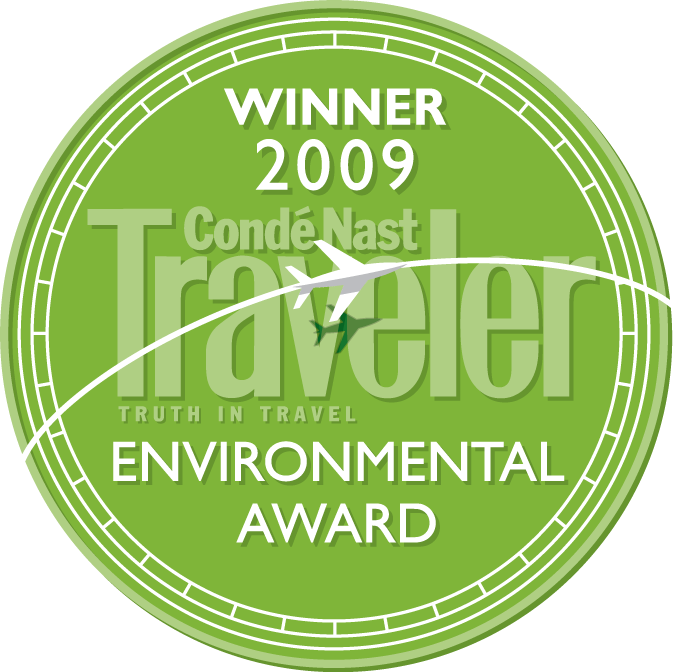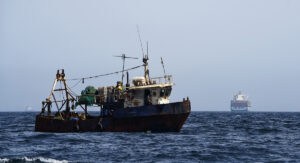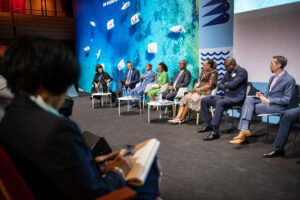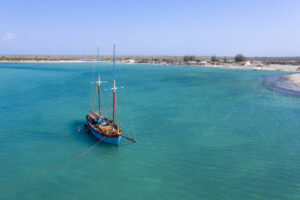
Six years on, Blue Ventures has grown into a leading name for the promotion of grass-roots, community-based coastal conservation. In recognition of its progress pioneering new models for marine stewardship, Blue Ventures’ founder, Alasdair Harris, has been awarded this year’s Condé Nast Traveler Environmental Award.
For two decades, Condé Nast Traveler has been honouring environmental visionaries around the world who have found innovative solutions to seemingly intractable problems. Each year, Condé Nast receives hundreds of nominations and, with the help of a panel of expert judges, selects one winner and three runners-up.
Blue Ventures’ work in Madagascar has won international acclaim for its progress in demonstrating the sustainable economic benefits of responsible marine stewardship. Madagascar is widely regarded as the world’s most critical conservation priority, yet the island continent faces massive environmental problems linked to climate change, population growth and over-exploitation of natural resources.
“Our partners in making conservation happen here are some of the most innovative and visionary communities on the planet,” said Al Harris, in Madagascar’s capital Antananarivo this week. “They are also some of the poorest and most marginalised people in Africa, whose livelihoods and traditional way of life are threatened by overfishing, climate change, and global events over which they have no control. This award recognises their resolve and commitment to passing on a healthy and productive marine environment to future generations. The sacrifices that these people have made for conservation serve as a compelling lesson to us all of our shared global responsibility to take action to protect the world’s remaining biodiversity, upon which ultimately we all depend.”
Conservation efforts pioneered by Blue Ventures – including the creation of the largest locally-managed marine reserve in the Indian Ocean – have already guided national policy and been adopted at national and regional levels. And Blue Ventures’ work does not stop at creating marine parks. Alongside ‘traditional’ conservation, its programme portfolio encompasses sustainable aquaculture, family planning, shark and turtle research, social marketing, and environmental education. Blue Ventures’ work is now focusing on scaling-up conservation activities at national and international levels.
At its core, Blue Ventures is a social enterprise – constantly innovating new approaches to financing marine conservation, and generating almost all of its own conservation funding independently through its non-profit volunteer tourism programmes. Managed from headquarters in London, this funding supports a team of over 50 full time conservationists working on grass-roots conservation programmes in Madagascar, Fiji and Malaysia.
The Condé Nast Traveler Environmental Award joins a growing list of accolades and recognitions awarded to Blue Ventures in recent years for its work in marine conservation and sustainable development, including the prestigious IUCN SEED Award and the United Nations Equator Prize. This month Blue Ventures was also recognised in the UK’s annual Responsible Tourism Awards for a record fifth time, reaffirming its position as a global leader in ethical tourism.
Notes to editors
Blue Ventures is a London-based award-winning marine conservation organisation, dedicated to working with local communities to conserve threatened marine environments.
Our highly acclaimed conservation programmes work with some of the world’s poorest coastal communities to develop conservation and alternative income initiatives to protect biodiversity and coastal livelihoods. The results of our work help us to propose new ideas to benefit coastal communities everywhere.
In recent years Blue Ventures has won widespread international acclaim for its innovate approaches to addressing the challenges faced by coastal communities. Its recent accolades include the United Nations’ Equator Prize and SEED Award, two of the most prestigious global awards for biodiversity conservation.
Amongst other achievements Blue Ventures has created the largest community-managed marine reserve in the Indian Ocean – Velondriake – and pioneered ambitious research programmes tackling critical issues facing marine biodiversity and indigenous coastal communities.
Blue Ventures’ programme portfolio encompasses marine and fisheries research, sustainable aquaculture, family planning, environmental education and capacity building, fisheries management and protected area development.
Projects are now focusing on scaling-up conservation activities at national and international levels in the Indian, Pacific and Atlantic Oceans.
Blue Ventures is a social enterprise – innovating new approaches to financing marine conservation, and generating almost all of its own conservation funding independently. Business models include highly acclaimed ecotourism and carbon offsetting programmes, as well as community-based sustainable aquaculture projects.
Having diversified revenues considerably in recent years, we are now poised to launch an innovative new model for the sustainable financing of marine reserves, a ground-breaking project with potential for massive replication throughout the world’s tropical oceans.
Interviews with Alasdair Harris can be arranged with the Blue Ventures London office.
For more information, please contact Richard Nimmo or Raj Roy on +44 (0)20 3176 0548.





















